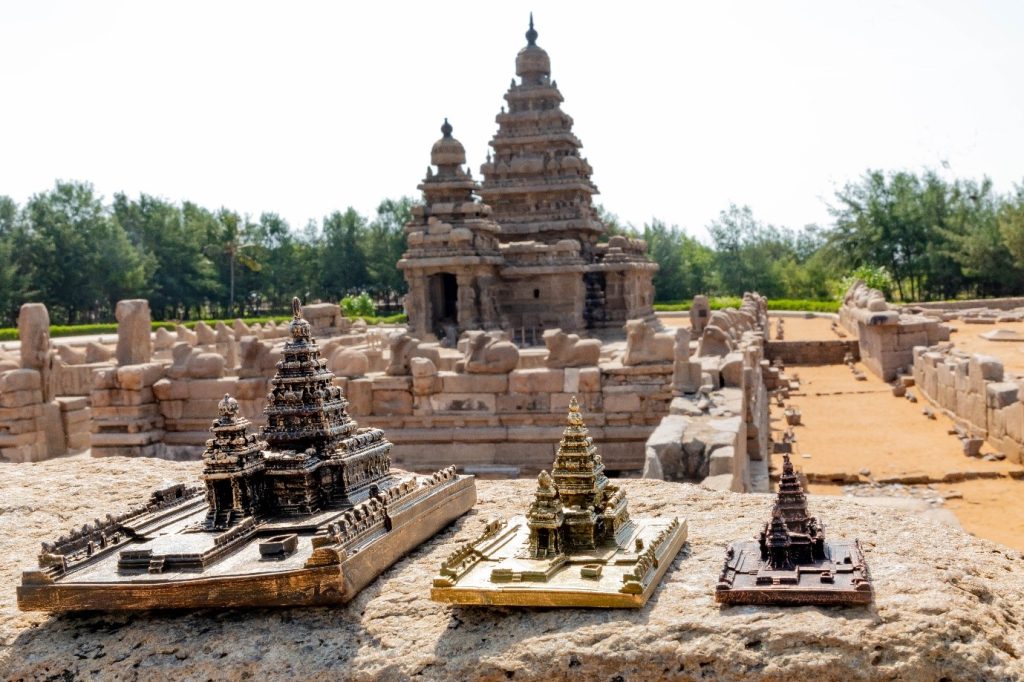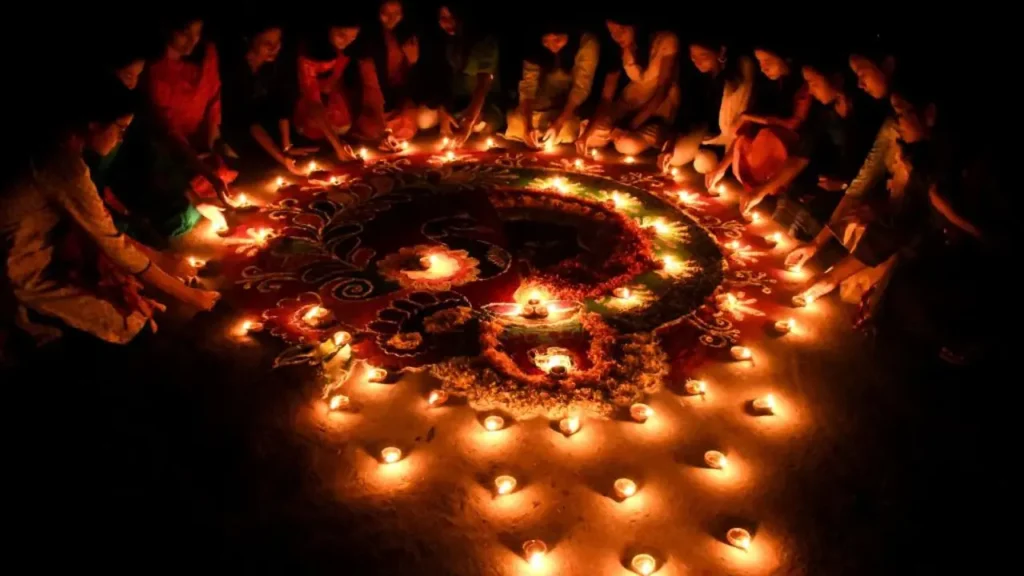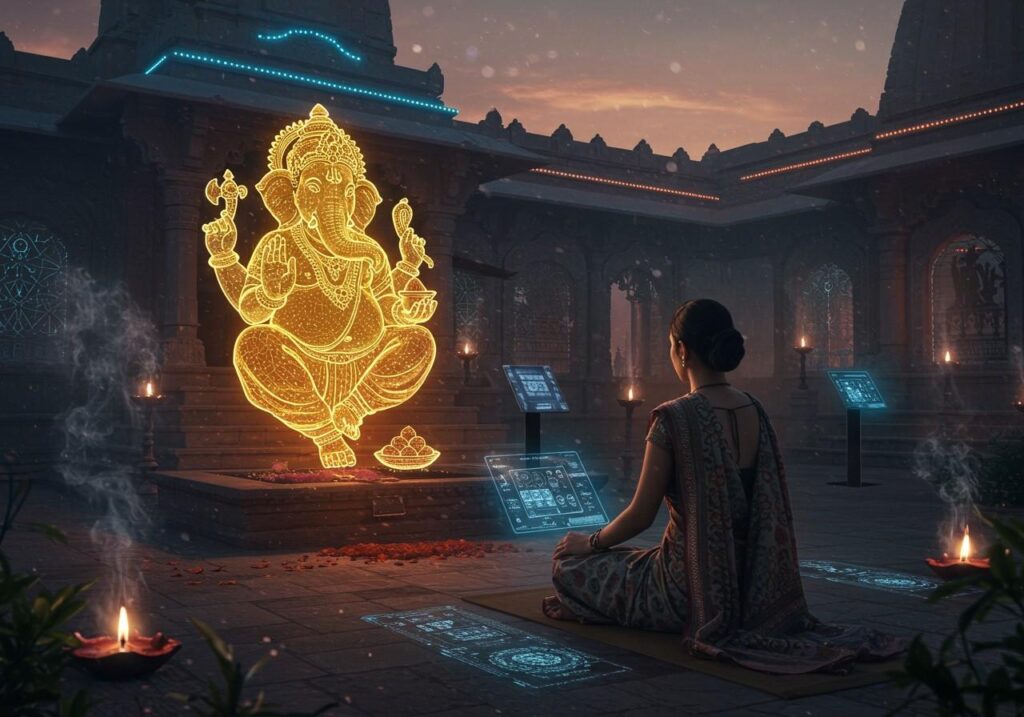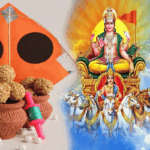Hinduism, one of the world’s oldest religions, is a vast and complex tradition rooted in philosophy, rituals, and cultural practices that date back thousands of years. Known as Sanātana Dharma—the eternal way—Hinduism has continually evolved through centuries, adapting to different eras while retaining its spiritual essence. In the modern age, with globalization, rapid technological advancements, and changing social values, Hinduism faces new challenges and opportunities.
The question that arises is: How does Hinduism maintain its sacred traditions while engaging with the modern world? This blog explores the journey of Hinduism in the modern age, examining its ability to navigate between tradition and transformation.
The Timeless Foundation of Hinduism

Before understanding modern adaptations, it’s essential to revisit Hinduism’s foundation. Unlike many religions with a single founder or central authority, Hinduism is a pluralistic system. Its core principles—dharma (righteousness), karma (action and consequences), moksha (liberation), and ahimsa (non-violence)—are universal values that transcend time.
Ancient scriptures like the Vedas, Upanishads, Bhagavad Gita, and epics such as the Ramayana and Mahabharata still hold immense spiritual and philosophical relevance today. These texts offer guidance on ethics, relationships, governance, and self-realization, making them applicable to modern challenges.
Hinduism and Modern Society

1. The Role of Hindu Rituals Today
Traditional Hindu practices—like daily prayers, festivals, temple visits, and meditation—continue to thrive, but many have been reinterpreted to fit busy lifestyles. For example, yoga and meditation, once deeply spiritual disciplines, are now globally embraced as tools for stress relief and wellness.
In urban settings, simplified pujas (rituals) and online darshans (virtual temple visits) have emerged, allowing people to stay connected to their faith despite fast-paced schedules.
2. Hindu Youth and Identity
Young Hindus today face a dual challenge: staying connected to their roots while integrating with global culture. Many second-generation Indians abroad explore Hinduism not just as a religion, but as a philosophy of life that offers balance, mindfulness, and meaning. Movements like ISKCON and yoga-based communities attract youth by blending traditional teachings with modern communication methods like social media and podcasts.
3. Globalization and Cultural Exchange
Hinduism has transcended India’s borders. Practices like yoga, Ayurveda, mantra chanting, and vegetarianism have gained global recognition. This cultural exchange has popularized Hindu values such as sustainability, mindfulness, and holistic health worldwide. However, globalization also risks cultural dilution, as deep spiritual practices sometimes become commercialized.
Technology and the Digital Transformation of Hinduism

The digital age has dramatically reshaped how Hindus engage with their faith.
Online Temples & Virtual Pujas: During the COVID-19 pandemic, many temples began offering live-streamed rituals. Devotees could participate in pujas, aratis, and festivals from across the world.
Spiritual Apps: Apps providing bhajans, mantras, astrological guidance, and meditation practices bring ancient wisdom to smartphones.
Social Media: Influential spiritual leaders like Sadhguru, Sri Sri Ravi Shankar, and Swami Vivekananda’s teachings (through modern platforms) inspire millions.
E-Learning for Scriptures: Online courses on the Bhagavad Gita, Vedic studies, and Sanskrit help preserve ancient knowledge while making it accessible globally.
Technology bridges the gap between tradition and modernity, ensuring that Hinduism remains vibrant and relevant.
Challenges Hinduism Faces in the Modern Age
While Hinduism adapts well to change, it also faces significant challenges:
Commercialization of Spirituality
Yoga studios and wellness retreats often strip away spiritual depth, reducing sacred practices into fitness trends. This risks misrepresentation of Hindu traditions.Generational Disconnect
Younger generations, particularly in urban areas, sometimes see rituals as outdated. Without deeper understanding, they may drift away from Hinduism’s philosophical richness.Caste and Social Issues
Hinduism is often critiqued for caste-related discrimination. Modern reform movements emphasize that Hindu philosophy at its core advocates equality and inclusivity.Religious Pluralism
In today’s interconnected world, Hindus encounter diverse beliefs. Balancing respect for other traditions while preserving their own identity remains a challenge.Environmental Concerns
Rituals like idol immersion, if done irresponsibly, can harm the environment. Modern Hindu communities are shifting to eco-friendly practices, reflecting Hinduism’s deep connection with nature.
Transformation of Hindu Practices
1. Eco-Spirituality
Hinduism traditionally reveres rivers, mountains, trees, and animals as sacred. In the modern era, this philosophy aligns with global ecological movements. Eco-friendly Ganesh idols, tree-planting drives during festivals, and green temples are gaining momentum.
2. Gender Inclusivity
Women in Hinduism are taking on leadership roles as priests, spiritual teachers, and scholars, challenging age-old restrictions. Progressive temples and reformist movements are reshaping gender roles in spiritual spaces.
3. Interfaith Dialogue
Hindu leaders increasingly engage in interfaith discussions, highlighting universal values of compassion, truth, and respect. This helps counter stereotypes and builds harmony in diverse societies.
4. Diaspora Adaptations
Hindus abroad often adapt rituals to their contexts—celebrating Diwali with multicultural communities, simplifying ceremonies, or blending cultural elements to stay connected to their roots.
Hindu Philosophy’s Relevance in the Modern World
Despite technological advancement and globalization, people across the globe face existential questions: Who am I? What is my purpose? How do I find peace?
Hindu philosophy provides profound answers.
Mindfulness & Meditation: The Hindu practice of dhyana (meditation) fosters mental clarity and resilience.
Karma Yoga: Selfless service is relevant in building compassionate communities.
Bhakti (Devotion): Cultivating love for the divine nurtures emotional balance in stressful times.
Advaita Vedanta: The non-dual philosophy emphasizing oneness resonates with modern seekers exploring consciousness.
This timeless wisdom makes Hinduism not just a religion, but a guide for modern living.
The Future of Hinduism in the Modern Age
As Hinduism continues its journey, several trends shape its future:
Digital Dharma: Virtual temples, AI-driven scripture translations, and global satsangs will expand accessibility.
Youth Engagement: Simplified yet meaningful rituals, digital storytelling, and cultural festivals will connect young Hindus worldwide.
Global Spiritual Leadership: Hinduism’s emphasis on non-violence, sustainability, and inner growth positions it as a guide for addressing global crises.
Reforms from Within: By addressing caste, gender, and environmental issues, Hinduism strengthens its credibility and relevance.
Final Thoughts
Hinduism in the modern age is a remarkable story of continuity and change. While rooted in ancient wisdom, it has adapted to the realities of globalization, digital innovation, and evolving social values. From virtual pujas to eco-friendly festivals, from yoga studios to online scripture classes, Hinduism demonstrates its ability to transform without losing its spiritual core.
In navigating tradition and transformation, Hinduism continues to illuminate a path of self-realization, compassion, and harmony with nature—values that are more relevant today than ever before.
For seekers and practitioners alike, Hinduism’s timeless wisdom offers both a grounding in tradition and a guiding light for the modern world.
Related posts:
 Hindu Dharma in the Modern Age: Navigating Tradition and Transformation
Hindu Dharma in the Modern Age: Navigating Tradition and Transformation
 Makar Sankranti: A Festival of Harvest, Tradition, and Joy
Makar Sankranti: A Festival of Harvest, Tradition, and Joy
 Navigating Life’s Storms: A Guide to Dealing with Disturbances
Navigating Life’s Storms: A Guide to Dealing with Disturbances
 Valentine’s Day: History, Significance, and Modern Perspective
Valentine’s Day: History, Significance, and Modern Perspective
 Teaching Kids Cybersecurity in the Digital Age: Essential Tips for Parents
Teaching Kids Cybersecurity in the Digital Age: Essential Tips for Parents
 Why Late Middle Age is So Important: A Transformative Phase of Life
Why Late Middle Age is So Important: A Transformative Phase of Life
